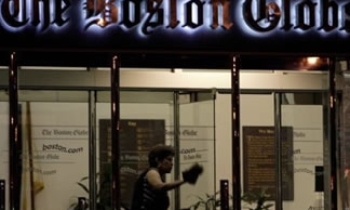The newspaper publisher Trinity Mirror has started a new round of job cuts, which could see some 750 workers axed at its regional and national titles, in a further sign that the industry is struggling.
The news follows the shock announcement earlier this week that Daily Mail & General Trust was bailing out of the regional newspaper industry with the sale of its Northcliffe division. News International has just frozen editorial budgets at its papers, which include The Sun and The Times, for the next three years.
DMGT already has in place a £30m cost-cutting programme at its Northcliffe regional division and it is regarded as all but inevitable that any buyer would have to extract further savings, which would result in significant job losses.
One senior newspaper executive said: "Circulation has been going down for years. Now advertising has hit a wall."
It is understood that Trinity Mirror is looking to remove between 5 and 7 per cent of its 11,000-strong workforce, across its national and regional titles. The company's nationals are led by the Daily Mirror; its regional papers include the Birmingham Evening Mail and the Liverpool Echo. The cuts could include about 150 editorial staff.
Some of the company's regional centres have already told staff of the numbers that will go, for instance 50 at its Cardiff operations. Many of the bigger papers, such as the Birmingham titles and the nationals, have not been informed of their fate. The group hopes to complete the programme by March.
Jeremy Dear, the general secretary of the National Union of Journalists, said: "These cuts are an entirely false economy. In order to build the company in the long term, they need to build readership and that means investing, not cutting. It will result in the longer-term decline of the titles."
Trinity Mirror, led by its chief executive Sly Bailey who has presided over a series of cost-cutting measures, recently cancelled its £250m share buy-back programme after purchasing only about £55m worth of its stock, citing the need to use its cash elsewhere.
A spokesman for Trinity Mirror said: "In view of the challenging economic conditions facing all media companies, each of our businesses has conducted a review of its cost base. Those reviews are now being completed, and our businesses are entering periods of consultation with those employees affected. This is a locally-driven process and each operating company has its own timetable for consultation."
Advertising revenues across the industry are under severe pressure, especially the classified ads that are the lifeblood of regional papers. DMGT revealed that recruitment ads are currently down 20 per cent at its regionals. Elsewhere, Emap's Nursing Times publication has reported that its job ads have collapsed.
DMGT argued this week that the downturn was the result of cyclical economic factors but many believe a major structural shift is under way, with advertising moving away from traditional media and on to the internet. Classified advertising in newspapers is especially susceptible to this migration.
But not everybody believes that the newspaper industry is doomed. Alex DeGroote, an analyst at Panmure Gordon, said DMGT's Northcliffe business is expected to fetch £1.5bn. "If it [Northcliffe] were such a busted flush as a business model, why would people want to buy it?" Mr DeGroote said.
Although Northcliffe would be a very big acquisition for the other two major UK-listed regional newspaper groups, Trinity Mirror and Johnston Press, analysts said the City may welcome such a deal. Northcliffe's margins are 20 per cent, compared with nearly 28 per cent at Trinity Mirror and more than 30 per cent at Johnston. If Northcliffe's margins were brought up to this standard, it would add £50m to its £100m annual profits.









